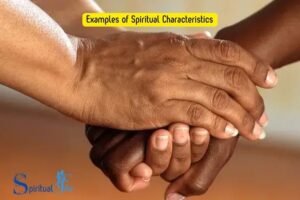Examples of Spiritual Abuse in Marriage: Manipulate!
Spiritual abuse in marriage refers to the use of religious beliefs by a spouse to dominate, control, manipulate, or demean their partner.
Examples may include forcing the partner to participate in religious activities against their will, interpreting religious texts in a way that justifies abusive behavior, and making the partner feel guilty or sinful for not following certain religious practices.
Spiritual abuse in a marriage can manifest in various ways. This form of abuse often stems from unequal power dynamics where one spouse uses religious or spiritual beliefs as a tool to exert control or manipulation over their partner.
Spiritual abuse can be subtle or overt and can cause significant psychological and emotional harm.
In a spiritual abuse situation, one spouse often uses the other’s faith against them. This can make it especially difficult for the victim to recognize it as abuse, because it can be cloaked in the language of spirituality and religion.
The critical aspect here is the manipulative use of religious belief to control and dominate the other spouse.
8 Examples of Spiritual Abuse in Marriage
| Examples of Spiritual Abuse in Marriage | Description |
|---|---|
| Manipulation | This may involve the abusive partner distorting religious beliefs to justify their abusive behavior. |
| Forced Participation | The abusive partner may force the victim to participate in their religious practices, regardless of the victim’s personal beliefs or interests. |
| Isolation | The abusive partner may isolate the victim from friends, family, or other social networks under the premise of religious beliefs. |
| Control of Religious Beliefs | The abusive partner might insist that the victim change their beliefs, or interpret religious texts in a way that supports the abuser’s behavior. |
| Shaming for Beliefs | The abuser may shame or marginalize the victim for their spiritual beliefs, leading to feelings of guilt or unworthiness. |
| Spiritual Neglect | This happens when an abusive partner refuses to engage or even belittles the other person’s spiritual needs and ignores their religious beliefs. |
| Creating Fear with Religion | Using religion to threaten or create fear in the victim. For example, they might use the concept of sin or eternal punishment to intimidate. |
| Denying Right to Religion | Refusing to allow the victim to practice their religion or to engage in spiritual activities. |
Key Takeaway

Five Facts About: Spiritual Abuse in Marriage
Manipulation Of Religious Beliefs
Examples of spiritual abuse in marriage reveal the manipulation of religious beliefs to control and harm individuals.
These actions exploit the sacred aspects of faith to gain power and inflict emotional or psychological pain on vulnerable spouses. Such abuses erode trust and can lead to long-lasting damage within the marital relationship.
Using Scripture To Control And Manipulate The Spouse:
- Some spiritual abusers may exploit religious texts to assert power and control over their spouse. This manipulation of scripture can have detrimental effects on the victim’s well-being and the overall health of the marriage.
- Bullying and coercion techniques are employed to justify manipulation through religious beliefs.
- Unhealthy interpretation and misrepresentation of religious teachings can further exacerbate the manipulation, making it challenging for the victim to question or resist the abuser’s claims.
- It is crucial to recognize and address instances where scripture is used to manipulate the spouse, as it can have profound emotional, psychological, and spiritual consequences.
Isolation And Alienation
Examples of spiritual abuse in marriage often lead to feelings of isolation and alienation, causing significant harm to the individuals involved.
This can manifest through control, manipulation, and the imposition of strict religious beliefs, leading to emotional and psychological distress in the marriage.
Isolation And Alienation
Isolation and alienation are common tactics used in cases of spiritual abuse in marriage.
The abusive partner may exert control over their spouse by discouraging contact with friends and family who have differing beliefs, as well as limiting the spouse’s outside activities or involvement in spiritual communities.
Here are some examples of isolation and alienation in spiritual abuse:
Discouraging contact with friends and family who have differing beliefs:
- The abusive partner may criticize the spouse’s loved ones, questioning their faith or values.
- They may create an atmosphere of judgment and condemnation towards these individuals.
- The abusive partner may manipulate the spouse into feeling guilty for maintaining relationships with those who don’t share their beliefs.
Limiting the spouse’s outside activities or involvement in spiritual communities:
- The abusive partner may discourage the spouse from attending religious gatherings or participating in religious activities outside the marriage.
- They may insist on exclusive spiritual involvement within the marriage, excluding any outside influences.
- The abusive partner may use emotional manipulation or coercion to enforce their control over the spouse’s spiritual engagement.
It is important to recognize and address these tactics of isolation and alienation in cases of spiritual abuse within a marriage.
Seeking support, education, and professional help can be crucial for healing and breaking free from such abusive dynamics.
Remember, spiritual abuse is a serious matter, and it is essential to address the issue with sensitivity and seek help from trusted professionals or organizations specializing in domestic abuse and spiritual counseling.
Emotional And Psychological Manipulation
Spiritual abuse in marriage can manifest as emotional and psychological manipulation, where one partner uses religion or spirituality to control and exploit the other.
This can include tactics such as gaslighting, guilt-tripping, and using scripture to justify abusive behavior, leading to detrimental effects on the victim’s mental and emotional well-being.
Guilt-Tripping The Spouse For Not Being “Spiritual” Enough:
Using spiritual language as a weapon, some spouses employ guilt-tripping tactics to manipulate their partners into feeling inadequate or unworthy in their spiritual journey.
Here are some ways this form of emotional and psychological abuse manifests in a marriage:
Emotional manipulation:
Constantly reminding the spouse of their perceived lack of spirituality or commitment to their faith.
Blaming the spouse for any problems in the relationship, attributing it to their supposed spiritual shortcomings.
Pressuring the spouse to engage in religious activities or practices that they may not feel comfortable with, as a way to prove their devotion.
Demeaning and belittling language:
- Using spiritual terminology to belittle or insult the spouse, making them feel inferior or unworthy.
- Dismissing the spouse’s questions or doubts about their faith, using derogatory language that undermines their intelligence or sincerity.
- Mocking the spouse’s spiritual beliefs or practices, ridiculing them in front of others or privately.
Isolation and control:
- Manipulating the spouse’s social interactions within their religious community, isolating them from friends, family, or support networks.
- Establishing rigid rules or expectations about the spouse’s spiritual life, dictating how they should behave, think, or feel.
- Withholding affection, love, or support as a way to control or punish the spouse for not meeting the expected spiritual standards.
Gaslighting:
- Distorting the spouse’s perception of reality, making them doubt their own experiences or emotions related to their spirituality.
- Minimizing or invalidating the spouse’s genuine spiritual experiences, making them question the authenticity of their beliefs or connections with a higher power.
Conditional love and acceptance:
- Linking the spouse’s worthiness of love or acceptance to their level of spirituality, constantly reminding them that they are only valued if they conform to certain spiritual expectations.
- Threatening divorce or abandonment if the spouse deviates from the prescribed spiritual path or questions the beliefs and practices imposed upon them.
It is important to recognize that spiritual abuse in marriage can have severe emotional and psychological impacts on individuals.
It is crucial for the abused spouse to seek support from trusted friends, family, or professionals who can provide a safe environment to heal and regain their sense of self-worth.
Strict Gender Roles
Examples of spiritual abuse in marriage can be seen through the imposition of strict gender roles, where one partner is forced into traditional roles, limiting their personal growth and autonomy within the relationship.
This can lead to emotional and psychological harm, causing long-lasting damage to the individual’s well-being.
In marriages affected by spiritual abuse, one common form is the imposition of strict gender roles based on religious beliefs. This can lead to the suppression of one partner’s individuality and undermine their emotional well-being.
Here are some key aspects of this type of abuse:
- Denying equality: Insisting that the spouse adhere to traditional gender roles, often based on narrow interpretations of religious teachings, can perpetuate inequality within the relationship.
- Restricted opportunities: By imposing specific roles solely based on gender, such as assigning tasks or responsibilities, the abusive partner may deny the other spouse opportunities to pursue their interests or career aspirations.
- Limiting autonomy: Imposing strict gender roles can undermine the autonomy and decision-making power of the abused spouse, reducing their agency within the relationship.
- Emotional harm: The constant enforcement of these rigid gender roles can lead to emotional harm, eroding the self-esteem and self-worth of the spouse who is restricted by these expectations.
- Suppression of identity: Forcing adherence to traditional gender roles can stifle the individuality of the abused spouse and hinder their personal growth and self-expression.
It is important to recognize the damaging effects of enforcing strict gender roles as a form of spiritual abuse within a marriage. By doing so, we can work towards creating healthier and more equitable relationships.
Withholding Support And Compassion
This engaging content explores the distressing examples of spiritual abuse in marriage, particularly focused on withholding support and compassion.
The article delves into the harmful impact of this form of abuse on individuals and relationships, shedding light on an often overlooked issue.
Marriage is meant to be a union built on love, trust, and support. Unfortunately, in some cases, it can become a breeding ground for spiritual abuse.
Withholding support and compassion is one form of spiritual abuse that can have devastating effects on the victim’s emotional well-being.
In this section, we will explore how this aspect of spiritual abuse manifests in a marriage, specifically through telling the spouse that their suffering is a result of their lack of faith and refusing to provide emotional support during difficult times.
Telling The Spouse That Their Suffering Is A Result Of Their Lack Of Faith:
- The abuser manipulates the victim by blaming their suffering on their perceived lack of faith, instilling guilt and shame in the process.
- Statements such as “if you had more faith, you wouldn’t be going through this” undermine the spouse’s feelings and dismiss their struggles.
- This behavior invalidates the spouse’s emotions and makes them question their own worth and spirituality.
Refusing To Provide Emotional Support During Difficult Times:
- The abuser neglects their role as a supportive partner, intentionally refusing to offer comfort and understanding.
- They may dismiss the spouse’s problems as trivial or unworthy of attention, leaving the victim feeling unheard and isolated.
- Emotional support is vital in any relationship, especially during challenging periods, and withholding it can lead to increased emotional distress for the spouse.
Spiritual abuse in the form of withholding support and compassion in a marriage can have severe consequences on the victim’s mental and emotional well-being.
By telling the spouse that their suffering is a result of their lack of faith and refusing to offer emotional support during difficult times, the abuser maintains control over the victim’s spirituality and emotions, perpetuating a toxic dynamic within the relationship.
It is essential to recognize and address these harmful behaviors to promote a healthy, nurturing marital environment.
Weaponizing Spirituality
Examples of spiritual abuse in marriage showcase the dark reality of weaponizing spirituality.
This manipulative practice can include coercive control, gaslighting, and using religious teachings as a means of exerting power and control over a partner, ultimately causing emotional and psychological harm.
Using spiritual teachings to shame and blame the spouse for their perceived shortcomings:
- Emotional manipulation: Some individuals may misuse spiritual teachings to shame and blame their spouse, manipulating them emotionally and using their faith as a tool for control.
- Distorted interpretation of scriptures: The abuser may selectively interpret religious texts to emphasize the spouse’s perceived flaws, using the teachings as a weapon against them.
- Imposing unrealistic expectations: The spouse’s actions and behaviors are scrutinized based on the abuser’s interpretation of spiritual teachings, leading to unrealistic expectations and a constant sense of inadequacy.
- Guilt and shame tactics: By imposing guilt and shame, the abuser effectively suppresses the spouse’s independence and sense of self-worth, using spirituality as a means to gain power and control.
Using spiritual practices as a means of punishment or control:
- Controlling access to spiritual activities: The abuser may restrict the spouse’s participation in spiritual practices, such as attending religious services, praying, or engaging in meditation, to exert dominance and control.
- Forcing religious rituals: The abuser may enforce religious rituals and practices on the spouse, disregarding their personal preferences and boundaries, and using spirituality as a tool to maintain power dynamics in the relationship.
- Withholding forgiveness and redemption: The abuser may manipulate their religious beliefs to withhold forgiveness and redemption from the spouse, perpetuating a cycle of guilt, shame, and control.
- Punishing through religious isolation: The abuser may isolate the spouse from their spiritual community, cutting off support networks and instilling a sense of fear and dependence.
It is important to acknowledge that spirituality should bring peace, love, and understanding, rather than be used as a means of control or abuse within a marital relationship.
Seek Support From A Trusted Community
When facing examples of spiritual abuse in marriage, seeking support from a trusted community can provide valuable guidance and healing.
Connect with others who understand your situation and can offer empathy and advice without judgment. Trusting community support can enable survivors to find the strength to overcome and heal from spiritual abuse.
Developing a support system is crucial when dealing with spiritual abuse in a marriage. Seeking guidance and validation from a trusted community can provide the much-needed support to navigate through this challenging situation.
Here are some ways to find the support you need:
Connect with a spiritual community: Look for a religious or spiritual community that aligns with your beliefs and values.
Find a safe space where you can share your experiences and concerns without judgment. Engaging with others who have faced similar challenges can provide comfort and a sense of belonging.
Consult with a therapist: A qualified therapist can offer guidance and professional support to help you heal from spiritual abuse in your marriage.
Look for therapists who are experienced in dealing with trauma and marital issues. They can provide validation and help you develop strategies to rebuild your self-esteem and regain your sense of self.
Join support groups: Seek out support groups that specifically focus on spiritual abuse in relationships.
These groups provide a platform for individuals to share their experiences, gain insight, and offer support to one another. Being part of a supportive community can validate your feelings and provide valuable guidance on how to navigate your situation.
Reach out to friends and family: Lean on your support network and confide in trusted friends and family members who can provide emotional support.
Share your experiences with those who are understanding and open-minded, and seek their advice or simply a listening ear.
Explore online resources: The internet offers a wealth of resources for individuals experiencing spiritual abuse in their marriages.
Blogs, forums, and websites dedicated to survivors of abuse can provide valuable information, guidance, and virtual support.
Engaging In Self-Care Practices
Recovering from spiritual abuse in a marriage requires taking care of yourself and prioritizing your well-being.
Here are some self-care practices that can aid in rebuilding self-esteem and healing from the trauma:
Practice mindfulness and meditation: Engaging in mindfulness activities and meditation can help quiet the mind, reduce anxiety, and foster self-awareness. These practices can be beneficial in the healing process by promoting self-reflection and inner peace.
Engage in physical activity: Regular exercise has numerous positive effects on mental and emotional well-being.
Engaging in physical activity releases endorphins, reduces stress, and improves overall mood. Find an exercise routine that suits your preferences and abilities, whether it’s going for a walk, practicing yoga, or joining a fitness class.
Prioritize self-expression: Find healthy outlets for self-expression such as journaling, painting, or engaging in any form of creative expression that resonates with you. This can provide an emotional release, allow for reflection, and aid in self-discovery.
Seek professional counseling: Working with a counselor or therapist who specializes in trauma and abuse can help you process the emotional scars of spiritual abuse and facilitate healing.
Professional guidance can equip you with tools and coping strategies to rebuild your self-esteem and move forward.
Establish boundaries: Setting boundaries is essential for your emotional and mental well-being. Identify your needs and communicate them clearly to your partner.
Establishing boundaries helps protect yourself from further abuse and empowers you to prioritize your own well-being.
Remember, self-care is an ongoing process, and it’s important to be patient and compassionate with yourself as you heal and rebuild your life after spiritual abuse in your marriage. Seek the support you need and invest in your own well-being.
Set Boundaries And Establish Healthy Communication
Set boundaries and promote healthy communication to prevent spiritual abuse in marriage. By establishing clear limits and fostering open dialogue, couples can create a safe and respectful environment for their spiritual growth.
Learning To Assert Boundaries And Communicate Clearly About One’S Needs And Desires:
Setting boundaries is crucial in any healthy relationship, including a marriage affected by spiritual abuse. When it comes to overcoming this type of abuse, it’s important to establish open and honest communication channels.
Here are some ways to assert boundaries and communicate effectively:
- Identify your values and needs: Take the time to reflect on what matters to you and what you need in a healthy relationship. This self-awareness will help you communicate your boundaries more effectively.
- Communicate assertively: Use “i” statements to express your thoughts and feelings without blaming or attacking your partner. For example, instead of saying, “you always make me feel guilty,” say, “i feel guilty when xyz happens.”
- Be specific about your boundaries and expectations: Clearly communicate your limits and expectations to your partner. Be specific about what behaviors you will and will not tolerate in the relationship.
- Practice active listening: Genuine listening is key to effective communication. Give your partner your full attention, validate their feelings, and respond empathetically.
- Seek support: If your partner is resistant to respecting your boundaries or if you’re having difficulty communicating, consider seeking professional help from a therapist or counselor. They can guide you through the process and provide valuable insights.
- Regularly reassess and adjust boundaries: As you grow and change, so may your boundaries. It’s crucial to regularly reassess and adjust your boundaries to create a healthy and evolving relationship.
Remember, asserting boundaries and fostering healthy communication takes time and practice. By prioritizing respectful dialogue and open communication, you can begin to heal from the effects of spiritual abuse and cultivate a healthier and more empowering marriage.
Developing Healthy Coping Mechanisms For Dealing With Spiritual Abuse:
Dealing with spiritual abuse in a marriage can be challenging, but developing healthy coping mechanisms can help you navigate this difficult situation.
Here are some strategies to help you cope:
- Seek emotional support: Reach out to trusted friends, family members, or support groups who can provide a safe space for you to share your experiences and offer guidance.
- Practice self-care: Take care of your physical, emotional, and mental well-being. Engage in activities that bring you joy, practice relaxation techniques, and prioritize your health.
- Set personal boundaries: Establish boundaries not only with your partner but also with yourself. This means recognizing and respecting your own needs and limits.
- Educate yourself: Learning about spiritual abuse and its effects can help you understand the dynamics at play in your marriage. This knowledge can empower you to make informed decisions and take necessary steps for change.
- Focus on personal growth: Invest time and energy in personal development. Engage in activities that promote self-reflection, personal growth, and empowerment.
- Consider professional help: If the effects of spiritual abuse continue to impact your well-being, seeking the guidance of a therapist or counselor experienced in abuse and trauma can be beneficial. They can provide you with tools and support tailored to your specific situation.
Remember, coping with spiritual abuse takes time and patience. It’s essential to prioritize your healing journey and surround yourself with a supportive network to help you through this challenging time.
Reclaiming Spirituality
Marriage can sometimes be a breeding ground for spiritual abuse, with examples including control over religious beliefs, forced adherence to religious practices, and manipulation using spirituality.
Recognizing and addressing these issues is crucial in reclaiming spirituality within a marriage.
Spiritual abuse in marriage can be incredibly damaging, stripping individuals of their autonomy, beliefs, and values. It is important for survivors to reclaim and rediscover their own spirituality in order to heal and find their inner strength.
Here are some ways to begin the journey of reclaiming spirituality after enduring spiritual abuse within a marriage:
Rediscovering One’s Own Beliefs And Values Outside Of The Abusive Marriage:
- Take time for self-reflection: Reflect on your own values, beliefs, and what spirituality means to you. This will help you discern what resonates with your true self.
- Explore different perspectives: Engage in reading books, articles, or attending workshops or seminars that explore different spiritual perspectives and philosophies.
- Seek support from like-minded communities: Participate in support groups or connect with others who have similar spiritual beliefs. Sharing and learning from others can be empowering.
- Cultivate a personal spiritual practice: Establish a daily practice that aligns with your own beliefs and values, such as meditation, prayer, or journaling. This helps to deepen your connection with spirituality on a personal level.
Seeking Healing Through Alternative Spiritual Practices Or Therapies:
- Holistic healing modalities: Explore alternative therapies like energy healing, reiki, acupuncture, or sound therapy. These practices can help release emotional energy blockages and promote healing.
- Mindfulness and meditation: Engage in mindfulness and meditation practices to cultivate inner peace, reduce stress, and nurture a sense of spiritual well-being.
- Connect with nature: Spend time outdoors and cultivate a connection with the natural world. Whether it’s spending time in a garden, hiking in the forest, or simply sitting by the ocean, nature can provide solace and a sense of interconnectedness.
- Creative expression: Use creative outlets such as art, music, or writing as a means to reconnect with your spirituality. These expressive activities can provide a cathartic and healing experience.
Remember, the journey of reclaiming spirituality after experiencing spiritual abuse in marriage is unique to each individual. Be patient with yourself, allow healing to unfold at its own pace, and trust in your own inner wisdom as you move forward.
FAQ About Examples Of Spiritual Abuse In Marriage
What Are Examples Of Spiritual Abuse?
Spiritual abuse can take many forms, such as manipulation, control, and exploiting vulnerability. It involves misusing spiritual beliefs and practices to exert power over individuals or groups.
Examples of spiritual abuse include:
1. Emotional manipulation and guilt-tripping to exert control over someone’s spiritual beliefs.
2. Isolating individuals from friends and family to maintain authority and dominance.
3. Forcing strict adherence to certain religious practices or beliefs, disregarding personal autonomy.
4. Using spiritual teachings to justify abusive behavior or promote intolerance and discrimination.
5. Exploiting trust and dependency for personal gain, such as financial exploitation or sexual abuse in the name of spirituality.
6. Engaging in spiritual bypassing, where genuine emotions and concerns are suppressed in favor of spiritual ideals.
7. Punishing doubters or those who question spiritual teachings, creating a climate of fear and silence.
Keep in mind that each situation and context can differ, but these examples demonstrate common patterns of spiritual abuse.
How Do I Know If I’ve Been Spiritually Abused?
Spiritual abuse can be difficult to recognize, but some signs may indicate you’ve experienced it. Examine your situation for these key indicators:
1. Authoritarian control: if someone dictates your beliefs and practices without room for questioning or personal discernment.
2.
Manipulation and guilt: if you feel constantly pressured, manipulated, or guilt-tripped into following certain beliefs or behaviors.
3. Isolation and exclusivity: if you’re discouraged from interacting with people outside of your spiritual group or if other viewpoints are dismissed outright.
4. Emotional and psychological damage: if you’ve suffered from anxiety, depression, low self-esteem, or trauma due to teachings or practices within your spiritual environment.
5. Forbidden critical thinking: if questioning or expressing doubts is discouraged and seen as a threat to the group’s authority.
6. Lack of accountability: if leaders refuse to take responsibility for their actions or create an atmosphere where abuse can permeate.
7. Loss of autonomy: if your personal boundaries, decisions, and choices are not respected or are violated by those in power.
Experiencing multiple signs can indicate spiritual abuse, and seeking support from trusted friends or professionals is crucial for healing.
What Are The Characteristics Of Spiritual Abuse?
Characteristics of spiritual abuse include manipulation, control, guilt induction, and isolation.
Manipulation involves twisting truth and exploiting vulnerabilities. Control is exerted through rules and regulations, denying personal freedom.
Guilt induction is used to manipulate behavior, making individuals feel responsible for their abuse.
Isolation is a key characteristic, cutting off victims from outside support. Spiritual abuse can lead to emotional and psychological harm, causing individuals to question their worthiness and lose their sense of self.
It may also result in a distorted view of spirituality, leading to confusion and mistrust.
Identifying these characteristics is crucial for recognizing and addressing spiritual abuse, providing support for survivors and promoting healing and growth.
What Are The Tactics Of Spiritual Abuse?
Spiritual abuse tactics can include manipulation, control, and exploitation. This abusive behavior often involves using religious beliefs and practices to exert power over individuals.
Tactics may include isolating victims, manipulating scripture, and exploiting their vulnerabilities. Perpetrators may enforce strict rules and regulations, denying personal freedoms and autonomy.
They may also employ emotional manipulation, guilt-tripping, and shaming to maintain control. Another tactic is fostering dependency, making individuals reliant on the abuser for their spiritual guidance and wellbeing.
Spiritual leaders who engage in abusive behaviors may also use their position of authority to justify their actions, silencing victims who speak out.
It is important to recognize and address spiritual abuse to protect the well-being of individuals within religious communities.
What Is Spiritual Abuse In Marriage?
Spiritual abuse in marriage refers to the manipulation of spiritual beliefs and practices to control and harm a partner.
Conclusion
It is crucial to recognize and address instances of spiritual abuse within marriages. The damaging effects of this form of abuse can be far-reaching, impacting both the individuals involved and the overall health of the relationship.
By understanding the signs of spiritual abuse, such as control, manipulation, and the use of religious beliefs to justify harmful behavior, couples can work towards healing and restoring trust.
Seeking professional help, such as therapy or counseling, can provide valuable support and guidance for those who have experienced spiritual abuse.
It is also important for religious communities to create safe spaces where open dialogue and education can take place, fostering understanding and prevention of spiritual abuse.
By promoting healthy and respectful relationships, we can create a culture that values the spiritual well-being of individuals within marriages.






